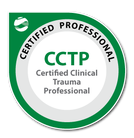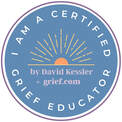|
“Love is three quarters curiosity.” --Giacomo Casanova
As I work with couples and individual clients there is one word that I use frequently; Curiosity. I encourage couples to become more curious about their partner and I encourage individuals to become curious about themselves. Curiosity is key to breaking free from old patterns, but what exactly is curiosity and why is it so important? Dictionary.com defines curiosity as “the desire to learn or know about anything; inquisitiveness.” Curiosity is a natural state. Watch any young child and they are immensely curious about the world around them. They want to know everything and ask ‘why’ relentlessly. But, as they grow older and begin to learn more, that curiosity takes on a different shape. There is excitement and energy when we are curious, but unfortunately, once we believe we know, that curiosity fades. We feel satisfied in our answer and we move on. There are four basic stages of learning, as developed by Noel Burch. We start by not knowing, what we don’t know, which he calls Unconscious Incompetence. It is not on our radar and we have not put any energy into thinking about it. We are blissfully unaware. The second stage is when we know what we don’t know, Conscious Incompetence. We realize that there is something we need to learn. Mistakes are common in this stage as we develop a new skill. The third stage is when we know what we know, Conscious Competence. We begin to feel competent in our knowing, although it may still take a significant amount of focus and energy to perform the task successfully. The last stage is when we gain mastery of what we know, which he refers to as Unconscious Competence. Our knowledge is integrated and fluid. We are able to perform the task with ease. When it comes to relationships and emotional understanding, many of us, unfortunately, have a skewed perception. We think we know who we are and who our partner is, so we lose curiosity. We assume that it is obvious how we are feeling and no longer put any energy into exploring what the anger or sadness truly is. Unless we have done some significant work in this area, most of us fall into the first stage of learning when it comes to our own emotions and knowing our partner’s emotional landscape. We are unaware that there is more to know. Admitting that we don’t know what is going on internally is critical because it gives us permission to become curious. Stage two is when we begin to focus our energy and become inquisitive. This is where the magic happens in relationships and self-development. It is where we begin to get clear on who we are and get to know our partner intimately. Curiosity is critical for growth. It changes you from the inside out. Will you dare to be curious?
2 Comments
"For me the greatest beauty always lies in the greatest clarity." --Gotthold Ephraim Lessing
‘Mindsight’ is a term developed by Dr. Daniel Siegel to describe our brain’s ability to be aware of itself. As humans we have the unique ability to think about our own thinking. We can focus our attention internally to notice our emotions, behaviors and thoughts. We can choose to change them once they are in our mindsight. By turning our attention inward and developing an awareness of our internal landscape we gain clarity in our lives. One of the most important pieces of mindsight is the understanding of neuroplasticity. Scientists used to think that the brain stopped growing by the end of childhood and was then fixed. We now know that the brain is capable of learning and developing throughout the lifespan. As we experience the world, neurons in the brain fire and create pathways for our experiences. By focusing our attention, we strengthen existing neural pathways and create new ones. The brain, through neuroplasticity, is able to create new patterns of firing which allow previously separated areas in the brain to integrate. Through focusing our attention on our internal experiences, the brain becomes more interconnected and adaptive. Dr. Siegel outlines three components that are critical to developing our mindsight and creating clarity in our lives. They are openness, observation and objectivity. Openness is being receptive to whatever emerges as we focus our attention inward. Observation is the ability to perceive our internal experiences from a distance. It is the ability to step back from our experience to notice the experience we are having. Objectivity is the ability to discern the difference between our experience and reality. We can perceive our internal experience without being swept away in it. By utilizing openness, observation and objectivity of our own internal experience, as well as to what is going on inside others, we are able to connect in new ways. The more mindsight we develop, the more our brains change and the more clarity we begin to have in our lives. Make this the year of mindsight growth. Based on the book Mindsight: The New Science of Personal Transformation by Daniel J. Siegel, M.D. |
Archives
April 2020
Categories
All
|
 RSS Feed
RSS Feed




